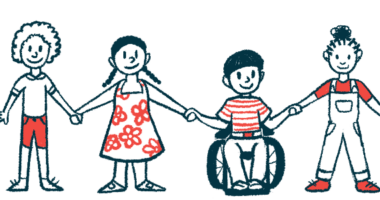Dravet Patients Have Abnormal Inflammatory Reaction to Vaccines, Study Shows

Dravet patients have an abnormal inflammatory reaction to vaccines, supporting a potential link between inflammation and epileptic seizures in these patients, according to a small study.
The study, “Altered vaccine-induced immunity in children with Dravet syndrome,” was published in the journal Epilepsia.
Dravet syndrome is a rare and severe type of epilepsy characterized by prolonged seizures within the first year of a child’s life. Mutations in the SCN1A gene are the cause of Dravet syndrome in 70-80% of patients, and alter nerve cells’ sensitization to temperature.
Fever is the most common trigger of seizures in Dravet patients. Because vaccination frequently results in vaccine-induced fever, it becomes the trigger in about 50% of these patients’ first seizures. However, vaccines do not cause Dravet syndrome and they do not change the course of the disease.
A vaccine is made from very small amounts of weak or inactivated microbes (or their toxins) that can cause diseases. They stimulate the body’s immune system to recognize and fight those agents, while creating an immune memory that allows the body to recognize and fight the disease faster and more effectively in a future encounter.
Because fever is a normal inflammatory response induced by the immune system to fight pathogens, and Dravet patients show fever- and vaccine-induced seizures, a link between inflammation and seizures is likely to exist. Previous studies also have suggested the involvement of inflammation in the development of epilepsy.
However, whether inflammation contributes to seizures is still unclear, as are the inflammatory responses to vaccination in Dravet patients.
French researchers analyzed immune cells taken from eight vaccinated Dravet patients (2-11 years of age) and compared them to those of eight age- and gender-matched healthy vaccinated children.
Vaccination did not induce seizures in five of the eight children with Dravet syndrome, whereas three of them had a vaccine-induced seizure. For one child, it was his first seizure.
Immune cells taken from blood samples of every patient were grown in the lab and exposed to a five-in-one vaccine that protects against five serious diseases — diphtheria, tetanus, whooping cough (pertussis), polio, and hepatitis B.
The levels of several cytokines — small molecules that regulate immune responses and inflammation — were measured.
In the absence of the vaccine, researchers found no differences in cytokine levels produced by immune cells of Dravet patients and healthy children. As expected in a situation of contact with a foreign agent, vaccine exposure induced an overall increase of cytokines levels in all children.
However, immune cells from Dravet patients produced significantly higher levels of a pro-inflammatory cytokine, and significantly lower levels of anti-inflammatory cytokines, compared to those of healthy children.
Similar results were observed when the experiment was performed specifically looking at monocytes — a type of immune cell that is crucial for immune responses involved in vaccination — from five Dravet patients and respective controls.
These findings showed for the first time that vaccine responsiveness in people with Dravet syndrome tilts toward a pro-inflammatory profile.
“We provide new insight into immune mechanisms associated with DS [Dravet syndrome] that might guide research for the development of new immunotherapeutic agents in this epilepsy syndrome,” researchers concluded.






